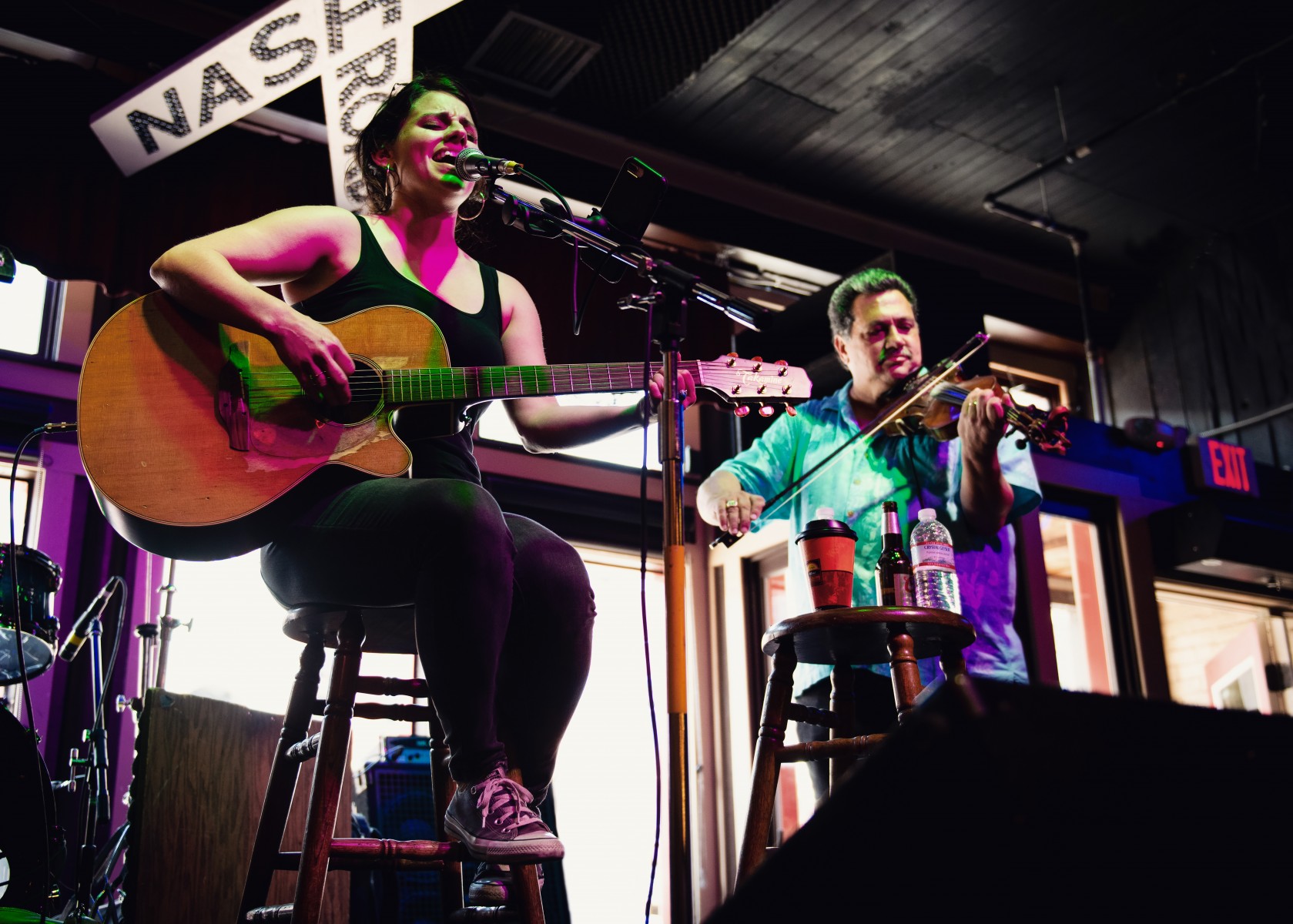The songwriter is creative – the singer, not so much
Study examines how Nashville songwriters co-write with stars
Country music songwriters must perform a careful dance when they work with famous singers who may be less talented at writing songs but bring the needed star power to attract fans – and, importantly, to get the song recorded in the first place, research suggests.
A study of 39 successful country-music songwriters found that they use two strategies to navigate creative collaboration with more famous artists.
 “You have these recording artists who are being required to co-write their own songs, but maybe that’s not their skill,” said Rachel Skaggs, the study’s author and an assistant professor of arts management at The Ohio State University.
“You have these recording artists who are being required to co-write their own songs, but maybe that’s not their skill,” said Rachel Skaggs, the study’s author and an assistant professor of arts management at The Ohio State University.
“And then you have songwriters who are brought in to help, and to collaborate, and they have to balance this. There’s the need to make money and make a living, and the need to not have their name on a ‘bad’ song.”
The study, published in September in the journal Social Psychology Quarterly, identified the two strategies – what Skaggs has termed “bespoke facilitation” and “the manipulation dance” – that songwriters employ to co-write songs with someone who might be a famous performer, but who might not be a great songwriter.
“There are these strategies for when collaborators don’t have the same idea of what they want to happen, particularly if one collaborator is much higher status – a more famous artist who is important to their label,” Skaggs said.
“And if you’re the songwriter in the room with them, you don’t want to undermine that collaborator. You want to identify that they have something to bring to the table, and maybe it’s their fame, but maybe it’s not creativity. So what are the ways around that? How can you can still create something that is good, but not alienate or belittle your partner?”
Such collaborations, between famous artists and successful songwriters, are becoming more common, Skaggs said, because of economic pressures on the music industry.
“We often think about creativity as being this very personal, independent thing, like some kind of prodigy in a room by themselves and their creative juices just flowing, but really it’s a socially constructed process,” she said.
But that means that highly skilled songwriters might find themselves in a room with an artist who has a great deal of celebrity, but not much skill – or sometimes, interest – in writing a song. For the study, Skaggs interviewed songwriters who are, she said, highly successful in the country-music industry.
The songwriters’ responses indicated that most either try to take a backseat to the singer – what Skaggs called “bespoke facilitation” – or they come in with the songs mostly written – “the manipulation dance.”
“Bespoke facilitation is basically where the songwriter might say to the artist, ‘Oh, you’re from Ohio, so we’re going to write a song called ‘Ohio Girl,’” Skaggs said. “It’s really kind of hitting on personal branding.”
That personal branding is important in this age of social media, Skaggs said, where fans want to feel a connection to the artists they love.
But it could also mean that the songwriter, in writing a song that caters to the artist’s personal brand, might lose reputation points among his or her songwriting community.
“It could be seen as fluff, right?” Skaggs said.
In the case of the manipulation dance, Skaggs said, songwriters might try to introduce ideas as though they were the more famous artist’s own. In that case, Skaggs said, the songwriters generally pre-write a large portion of the song – one songwriter mentioned writing a chorus and several verses ahead of time – then casually suggest the ideas as if they originated with the artist.
“They’ll get in the room and maybe it’s hard to corral the artist, and so they’ll say, ‘oh, what was that you wrote a minute ago, artist, that was so good?’ And they’ll introduce something they have already written,” she said. “And – it’s kind of deceptive, right? But it seems to work.”
That strategy – the “manipulation dance” – seems to be especially effective in cases when a songwriter wants to push the artist toward something with “more artistic merit,” Skaggs said.
“Maybe that could be a Grammy-nominated song as opposed to only a chart-topper,” she said.
Skaggs said her findings could also be applicable in other partnerships where collaborators are mismatched in some way – an office environment, for example, or a group project in a school or volunteer organization.


